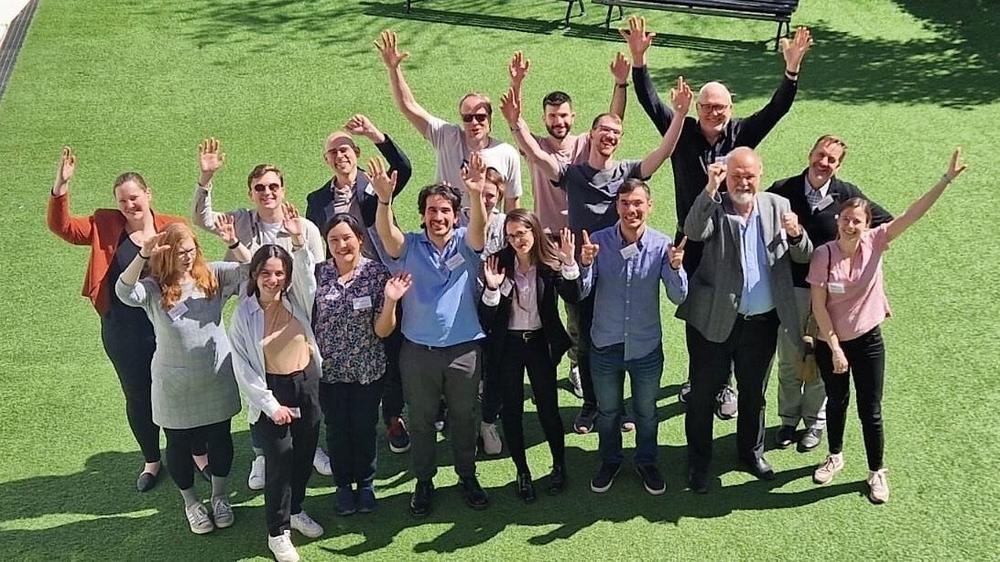This closing meeting is the occasion to evaluate results from two ongoing Phase IIa clinical trials, REPO-STROKE II and REPO-HFpEF II. Based on new insights into systems medicine gained at the University of Maastricht, a bioinformatics team distributed between Syddansk Universitiy (Kopenhagen), the Technical University of Munich and Hamburg University in Germany and Newcastle University (United Kingdom) collaborated to design triple combinations of approved drugs that block critical pathways in conditions with significant unmet medical need:
• In an ischemic stroke, a blood clot prevents oxygen and glucose from reaching a specific area of the brain, causing even more damage when reperfusion occurs. The REPO-STROKE II study which is being conducted at the University of Essen’s Department of Neurology, aims to prevent this by administering the pulmonary hypertension drug, riociguat; the antipsychotic,
perphenazine; and the thyroid drug, propylthiouracil. REPO-STROKE II has started patient enrollment in September 2022.
• The REPO-HFpEF II clinical trial is designed to treat a type of chronic heart failure characterized by stiffness of the left ventricle which cannot accommodate enough oxygen-saturated blood from the lungs for release into the general circulation (diastolic dysfunction). This trial, planned by the University of Halle (Germany), began in March 2023 at the Valencia University Clinic (Spain) and investigates a combination of vericiguat (another pulmonary hypertension drug), folate and L-citrulline.
“REPO-TRIAL prepares the ground to disrupt treatment of ischemic stroke and heart failure with preserved ejection fraction,” stated REPO-TRIAL project coordinator Professor Harald Schmidt, chair of the Department of Pharmacology and Personalised Medicine at Maastricht University in the Netherlands. “We have employed advanced bioinformatics and systems medicine to identify suitable triple combinations of repurposed drugs and advance them into Phase IIa clinical trials for these deadly conditions, with minimal requirements for animal experiments. While both studies are still enrolling patients, and no interim results can be disclosed yet, we are confident that they will break new ground in pathway-based medicine.”
Biocrates Life Sciences AG (Innsbruck, Austria) provides advanced biomarker analysis technology for samples obtained from patients in both trials.
The dissemination and exploitation of REPO-TRIAL results, led by H.M. Pharma Consultancy (Vienna, Austria), has resulted in numerous publications in reputable scientific journals as well as four international patent applications (including one granted United States patent) for which rights have already been licensed to a pharmaceutical company.
REPO-TRIAL, coordinated by the University of Maastricht (The Netherlands) and administered by concentris research management GmbH (Fürstenfeldbruck, Germany) has received funding from the European Union’s Horizon 2020 research and innovation programme under grant agreement No 777111. REPO-TRIAL started in February 2018 and will conclude in January 2024.
For inquiries, please contact the REPO-TRIAL coordinator Prof. Dr. Harald Schmidt: hschmidt@ppmlab.net
concentris research management gmbh
Ludwigstr. 4
82256 Fürstenfeldbruck
Telefon: +49 (8141) 6252-8570
Telefax: +49 (8141) 6252-8577
https://www.concentris.de
concentris research management gmbh
Telefon: +49 1796689800
E-Mail: nina.donner@concentris.de
![]()

